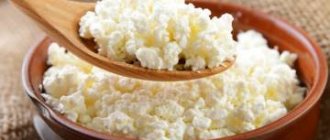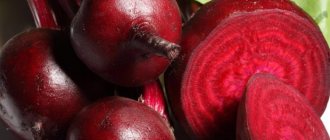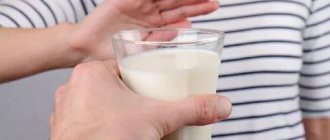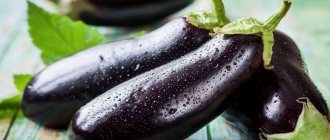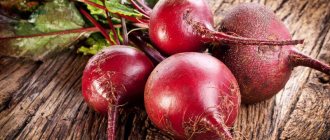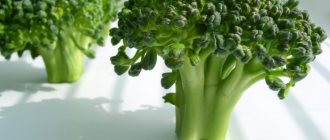Diarrhea is a disorder of the gastrointestinal tract, a common symptom of diseases, infections, and external influences. Diarrhea accompanies inflammatory and infectious processes, contributes to dehydration of the body, and leads to the loss of vital microelements. Pharmacies offer a large number of pharmaceuticals that have antidiarrheal effects. Traditional medicine recommends using pomegranate for diarrhea; the effectiveness of this remedy has been proven for generations.
Composition and properties
Before using anything for treatment, it is worth familiarizing yourself with the composition of the product and its elements. Pomegranate peels include:
- tannins are special compounds that are responsible for the astringent, tart taste;
- anthocyanins - the element that gives purple color;
- ursolic acid;
- salts of calcium, iron, potassium, zinc.
Due to its properties, pomegranate peels in the form of medicinal drinks affect the body as:
- Antimicrobial agent - inhibits the growth and reproduction of microbes, as a result of which the body is able to resist disease.
- An astringent agent – helps create a film that protects nerve endings and limits the inflammatory process.
- Hemostatic medicine - stimulates blood clotting, accelerates the healing process of wounds.
- Detoxification agent – can neutralize toxins and remove them from the body.
What do pomegranate peels contain?
There are repeated references to the medicinal properties of the fruit peel in ancient medical treatises. In particular, pomegranate was used for diarrhea by the famous physician Paracelsus back in the 16th century. Many of the medicinal properties of the crusts were confirmed after studies of the chemical composition.
The peel of the fruit contains:
- tannins 18-20%;
- pectins 4-6%;
- alkaloids: pelletierine, isopelletierine, methylpelletierine;
- polyphenols, catechins;
- ellagic acid;
- vitamins: C, E, group B;
- macroelements: potassium, calcium, magnesium;
- trace elements: iron, manganese, zinc, copper.
The concentration of polyphenols with antioxidant properties in the peel is 3-4 times higher than in the berries. Scientists are especially actively studying ellagic acid as a promising substance for cancer prevention.
Contraindications and side effects
People prone to allergies need to be extremely careful and watch how their body reacts to the treatment of diarrhea with pomegranate peels. It is also worth knowing that they also contain toxic elements, so the permissible dosage should not be exceeded. Otherwise, there is a chance that the body will be poisoned, and then drug intervention will be required.
It is highly recommended to discontinue the product if you have an exacerbation of allergies, anal fissures or constipation.
There are strict contraindications for taking decoctions of pomegranate peels:
- high fever or colds;
- during menstruation;
- constipation and hemorrhoids;
- kidney failure or hepatitis;
Rarely, but possible side effects such as:
- loss of strength;
- decreased vision;
- dizziness.
Benefits of pomegranate peel
Pomegranate is a natural healer, which contains a whole table of useful vitamins and microelements necessary for the human body to function smoothly. It has been proven that eating one pomegranate per day increases the body’s overall resistance to various infections, helps cleanse the blood and helps quickly recover from illness.
The peel of this exotic fruit has no less useful substances than its edible component, and it is no coincidence that these valuable qualities have long been used by traditional medicine, using pomegranate peels as the basis for healing decoctions and infusions for the treatment of such diseases:
- Diarrhea. The trouble-free effect of pomegranate peels against diarrhea in adults and children is achieved due to the high content of tannins, which have an astringent effect. Unlike most medications for diarrhea, pomegranate peel copes with this problem without disturbing the natural intestinal microflora.
- Dysentery, cholera, salmonellosis and typhoid fever. Being the strongest natural antioxidant, polyphenol, which is part of the chemical composition of pomegranate peel, effectively fights bacterial infections, suppressing their growth and reproduction.
- Diabetes. The composition of the skins of this fruit helps lower blood sugar.
- Peptic ulcers of the stomach and intestines.
- Infusions are also used for diseases of the mouth, throat, gynecological and cardiovascular problems.
The most common disease among people of all ages is periodic dysfunction of the digestive system, which is provoked by poor-quality foods or various E. coli, resulting in diarrhea. The advantage of using pomegranate peel over other folk and medical methods is its quick and safe effect, and also the fact that such treatment can be used as an emergency way to get rid of this unpleasant problem.
Before brewing pomegranate peels for diarrhea, they must be properly prepared.
Recipes for diarrhea using pomegranate peels
Treatment with pomegranate peels can be done at home. This is a fairly effective remedy that can be prepared without any problems from available materials. Due to its miraculous effects, antibacterial properties and anti-germ properties, people often use the peels to treat diarrhea.
If you prepare the remedy from pomegranate peels correctly, it will be enough to use the decoction once to stop diarrhea.
There are many recipes for making diarrhea remedies using pomegranate peel, and here are a few of them:
- Grind the zest (about one tablespoon is required) and pour boiling water over it. Let it brew for a while and take it for several hours. You can divide it into several doses, for example, take 25 grams five times a day.
- To prepare the decoction, grind the peels in a meat grinder or blender and pour a glass of hot water (at least 95 degrees). After this, place everything in a water bath and cover with a lid. Cooking time is about 20 minutes. After the expiration date, strain the broth and let it cool. Drink 25-30 grams 4-5 times a day.
- You can prepare an infusion from fresh crusts. To do this, take a freshly peeled pomegranate skin and pour a glass of boiling water. Leave to steep until the drink acquires a rich burgundy hue. You should not filter uzvar, because it does not form sediment as such. You need to drink it in one go; if it doesn’t help, you can prepare it again.
- You can also prepare alcoholic infusions from pomegranate peels. Grind the fresh skin thoroughly to make about 2 tbsp. l., put in a jar and fill with vodka (about 200 ml). Place the jar in a warm place for two weeks to let everything brew. After the expiration date, filter the tincture and take 5 drops in the evening and in the morning, diluting it in 1 tbsp. l. water.
The taste of the decoction of pomegranate peels is unpleasant, but the diarrhea will stop in a short time. It will take about 15 minutes after drinking for you to feel better. If this does not happen, it is recommended to repeat the procedure after 3 hours, brewing a new portion. Usually, after 5 hours, the diarrhea completely disappears, and the person feels much better.
Remember that the product must be dosed, taking into account age-old features. The decoction should not be taken together with medications.
The effectiveness of pomegranate for diarrhea
The pomegranate pericarp is a hard skin containing a huge amount of useful elements:
- vitamins;
- tannins;
- microelements (sodium, iron, calcium);
- organic acids;
- polyphenols (antioxidants).
The effectiveness of the method lies in the combination of the antimicrobial and astringent effects of pomegranate peel (some substances kill pathogenic bacteria, others reduce irritation of the intestinal mucosa, extinguish the inflammatory reaction, and stop diarrhea). Vitamins and antioxidants help strengthen the immune system and speed up recovery.
Pomegranate is used not only for diarrhea. Its medicinal properties help cope with many diseases:
- dysentery,
- dysbacteriosis;
- peptic ulcer;
- helminthic infestations;
- intoxication.
Reception features
Depending on age, there are certain recommendations on the dosage and rules for taking pomegranate peel products.
For children under 15 years old
The method of preparing the decoction for children is the same as for adults. Dosage is:
- for babies up to one year – one teaspoon 2-3 times a day;
- for a child from one to 7 years old - increase the dosage to 5 times a day;
- from 12 to 15 years old, children should be given one tablespoon of decoction up to 5 times a day.
Children over 15 years old and adults
An adult’s body is stronger than that of an infant, so it can easily tolerate a decoction of pomegranate peels, which will help with any type of diarrhea. It is necessary to take 2 tablespoons up to 4 times a day, depending on the degree of the disease. The duration of treatment depends on the cause of diarrhea and can range from one day to one week.
In cases where you need to stop diarrhea as soon as possible, you can take a loading dose of the decoction, drinking 50 ml at a time.
For pregnant
Despite the fact that there are no prohibitions on taking decoctions of pomegranate peels during pregnancy, to be on the safe side, it is still better to consult with your doctor.
It is strictly forbidden to take the drug in loading doses, as this may cause complications or allergies. Be sure to dissolve the decoction according to the dosage for adults (2 tablespoons) in 50 ml of water and take one tablespoon no more than 5 times a day.
Contraindications for home treatment with pomegranate
Treating diarrhea at home should be done carefully and only after consulting with your doctor. Contraindications to treatment with dry pomegranate peel are:
- the presence of allergic reactions to plants;
- persistent symptoms for more than two days;
- hemorrhoids and tendency to constipation;
- chronic kidney disease;
- hepatitis;
- decreased blood clotting.
If diarrhea is one of the symptoms of any serious disease, and treatment requires taking medications, then drinking a decoction of pomegranate peel is prohibited. Particular attention is paid to the age of the patients - children under one year of age should be under the supervision of a pediatrician, here self-medication is fraught with dangerous complications. Diarrhea causes the body to lose large amounts of fluid and electrolytes, and dehydration of more than 10% of body weight can be fatal. It is extremely important to provide your child with qualified medical care.
Pomegranate is a truly unique fruit. All its parts have beneficial properties - the juice, the pulp of the grains and even the peel. Fruit fiber normalizes the functioning of the gastrointestinal tract, amino acids improve metabolic processes, vitamins strengthen the immune system, iron maintains the level of hemoglobin in the blood, and tannins from the hard crust will help with digestive disorders.
The article was approved by the editors
How to dry peels correctly?
Today you can buy anything, including pomegranate peels to treat diarrhea. They are usually sold at the pharmacy. But you can cook them yourself.
To do this, you will need to lay the crusts on a clean sheet of paper and check that there is air access to them on all sides. You should not keep it in direct sunlight; it is best to find a regular lighted place. Thus, under average room conditions, it will take a little time for the crusts to dry.
If you want to speed up the process, you can use an electric dryer. Distribute the crusts evenly on its surface and set the temperature to no more than 50 degrees. As soon as they dry out and start to crunch, pull them out and grind them in a coffee grinder. An alternative is to grind it manually using a mortar. Next, pour the resulting powder into a glass jar and close it tightly with a lid. Shelf life - at least two years. As needed, take the required amount of powder from there to make tea or decoction.
This preparation option is suitable for everyone, because a person will be able to afford to prepare a medicine at home that is quite affordable in cost and copes well with such an unpleasant thing as diarrhea.
Procurement and storage of raw materials
The best time to harvest pomegranate peels is autumn. During this period, the berry ripening season begins, chemical treatment is eliminated, and the cost of pomegranate is reduced.
Select only whole fruits without damage, signs of rotting or mold. They must be washed under running water, peeled and the white pericarp separated as much as possible.
Dry in a darkened and well-ventilated room, laid out on top of paper and covered with gauze on top. The peels are regularly inspected and if mold appears, they are discarded. After 10-14 days they can be collected for storage.
Raw materials should be stored in glass containers with a lid, canvas or paper bags. The peels will keep well in a dark, dry place at room temperature.
After a year, the therapeutic effect of the raw material begins to decrease, so it is not worth procuring raw materials in large quantities. Before brewing dried skins, you need to check if mold has appeared on them.
Homemade herbal remedies have an advantage over synthetic drugs. The astringent property of tannins during the processing of raw materials for medicines is significantly reduced. Pomegranate peels are more effective than drugs with an astringent effect.
Period of action of pomegranate peels
If during the preparation of the medicine you observed the correct proportions, then you will need to drink the resulting tincture or decoction once and simply forget about the illness. However, there are cases when the reception must be repeated after a few hours.
Special cases include advanced forms of diseases, including salmonellosis and other similar ailments. In such cases, the tincture should be taken for three days several times a day. It will begin to act approximately 15 minutes after administration, but for preventive purposes it is recommended to take it for the specified period.
Recommendations for pregnant and lactating women
Pomegranate peel can be used for diarrhea in a pregnant or lactating woman if there are no other restrictions (allergies, liver, kidney, intestinal diseases). In this case, folk recipes will serve as an excellent alternative to pharmaceutical drugs and will eliminate the symptoms of mild diarrhea.
To avoid undesirable consequences, do not exceed the recommended dose of infusions and decoctions.
Course of treatment and frequency of use
Typically, this folk remedy is used for one to three days.
Frequent use of the medicine is not recommended, as adverse reactions may develop.
Among these phenomena are observed:
- gagging;
- high pressure;
- constipation;
- dizziness;
- blurred vision;
- migraine.
Before using pomegranate for diarrhea, you should consult with a specialist about the possibility of using such an alternative remedy.
What are the benefits of pomegranate peel?
- It has a beneficial effect on the functioning of the entire cardiovascular system. All this is possible thanks to a large number of antioxidants that destroy cholesterol molecules in the body.
- Removing toxins. Antioxidants come into play again. They are responsible for quick and painless detoxification. Cleansing primarily concerns the liver.
- Maintains oral hygiene. Pomegranate peel extract is often a component of toothpastes and mouth rinses. However, you can avoid purchasing expensive products and prepare them yourself.
- Against cough and sore throat. When combined with ginger, honey or even salt, pomegranate peel can help you forget about a sore throat.
- Reduces the manifestation of hemorrhoids.
- Reduces the effect of a hangover.
Pomegranate peels have the following cosmetic properties:
- Skin moisturizing. Ellagic acid will help with this, as it prevents drying of the skin.
- Sun protection.
- Fight against age-related changes.
Pomegranate peel in combination with pomegranate oil promotes the active production of procollagen, which protects the skin from premature aging. - For the beauty of hair. The peel prevents hair loss and dandruff formation.
We invite you to watch a video about the benefits of pomegranate peels for human health:
Chemical composition
What is in the peel of the fruit? (All data will be indicated per 100 grams of product).
- Tannins (their amount ranges from 25-28%).
- Dyes.
- Micro- and macroelements:
Potassium – 145 mg;
- Calcium – 9 mg;
- Magnesium – 3 mg;
- Iron – 0.2 mg;
- Copper – 156 mcg;
- Aluminum – 0.13 mg;
- Sulfur;
- Sodium – 4 mg;
- Iodine – 4 mg;
- Phosphorus – 7 mg;
- Boron – 56.7 mcg.
- Ursolic acid, alkaloids, polyphenols, antioxidants.
- Vitamins of group B (0.62 mg), E (0.6 mg), PP (0.29 mg), C.
